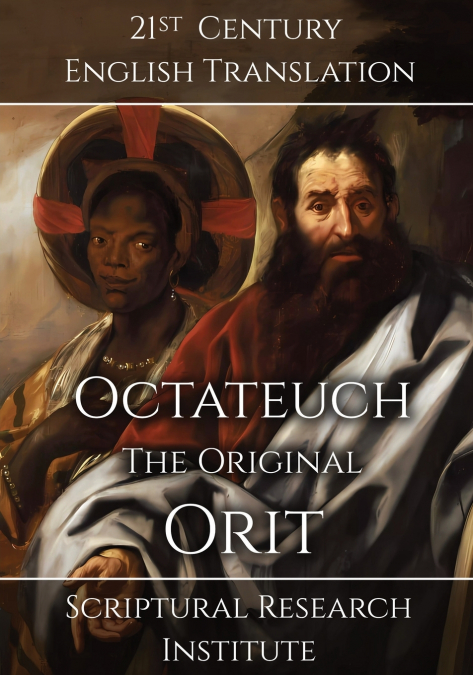
Scriptural Research Institute
In the mid 3rd century BC, King Ptolemy II Philadelphus of Egypt ordered a translation of the ancient Hebrew scriptures for the Library of Alexandria, which resulted in the creation of the Septuagint. The original version, published circa 250 BC, only included the Torah, or in Greek terms, the Pentateuch. The Torah is the five books traditionally credited to Moses, circa 1500 BC: Genesis, Exodus, Leviticus, Numbers, and Deuteronomy. The first edition was followed by the second, around 225 BC which added the books of Joshua, Judges, and Ruth, which was later known as the Octateuch. This version of the Septuagint was later carried south into the Kingdom of Kush by the Jews fleeing Egypt in 200 BC when Judea was in revolt and the Ptolemys attempted to exterminate the Jews in Egypt. The Octateuch later became the Torah of the Beta Israel community in Sudan and Ethiopia known as the Orit.A number of stories exist to explain the origin of the Beta Israel community, the ’Ethiopian Jews’ indigenous to Ethiopia, Eritrea, and Sudan. The recorded story of the origin of the Ethiopian Jews was reported by Eldad ha-Dani in the late 800s AD. Eldad ha-Dani was a dark-skinned Jew from a country south of Kush, modern northern Sudan, who was captured by pagan Ethiopians, and ultimately sold on the coast of what might be modern Kenya or Tanzania, to a Jew from the Parthian Empire, who took him back to modern Iran. He later traveled through the Middle East and the Mediterranean Sea. He claimed that he was from a country of Jews, south of Kush, who were the descendants of the tribes of Dan, Gad, Naphtali, and Asher, who had left Israel during the civil war that split the Kingdom into Judea and Samaria. Modern secular scholars doubt there was a united kingdom of Israel, however, if the civil war did happen, it would have happened in 922 BC when Jeroboam I and Rehoboam split the kingdom of Solomon. If true, this would make the Ethiopian Jews neither Jews, nor Samaritans, but a third branch of the Judeo-Samaritan religions, and arguably, older than the others.The Christian text Kebra Nagast claims that Judaism entered into Ethiopia slightly earlier when the Ethiopian Queen of Sheba traveled to Israel and was impregnated by King Solomon. Her son Menelik I led a group of Jews to Ethiopia when he stole the Ark of the Covenant. Other than the Ethiopian Orthodox Christians, few consider the Kebra Nagast historically valid. Some members of the Beta Israel community claim the Ethiopian Jews were originally members of the Jewish tribes led by Moses that chose not to enter into Canaan with Joshua, and instead traveled south and settled in the land of Moses’ Ethiopian wife, mentioned in Numbers chapter 12. A third story of the origin of the Ethiopian Jews, took place shortly after the Greeks had taken control over Egypt and Judea, when King Ptolemy I resettled Judeans in southern Nubia. This would have taken place between 305 and 282 BC, and later the Jews migrated south for various reasons.However they ended up in Ethiopia, they have traditionally used a variation of the Octateuch, which they call the Orit. The Octateuch is documented as being the version of the Septuagint that was published around 225 BC. Like the Ethiopian Christian Bible, the Orit appears to have had sections ’updated’ from Hebrew and Arabic sources over the past two thousand years. Octateuch: The Original Orit is a 21st century translation aimed at restoring the original Orit.